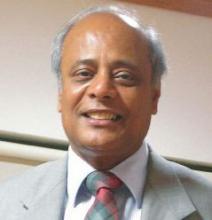Interviews
Towards the end of 2011 a group of Finnish academics came up with a new approach to the peer-review process. The result is a company called Peerage of Science. We find out more from one of its founders and managing director, Janne-Tuomas Seppanen
Government policies on research, open-access discussions and the role of different information sources are important topics. N V Sathyanarayana, chairman and managing director of Informatics (India), gives a perspective of the industry in India
Steve Miron, senior vice president of Wiley's Scientific, Technical, Medical and Scholarly business reveals why he is excited about the potential of open access
Peter Philips has recently become chief executive of Cambridge University Press. We asked him about his vision for the industry
Former astrophysicist Ian Mulvany has recently moved from Mendeley to take on the role of head of technology at the new open-access journal eLife. He talks about the vision for the funder-funded venture and the economics of open access
Michael Clarke is executive vice president for product and market development at Silverchair Information Systems
Vicky Reich, director of the LOCKSS programme at Stanford University Libraries, and Randy Kiefer, executive director of the CLOCKSS archive, explain why preserving digital content is a challenge that needs to be tackled, especially as this content becomes more dynamic
Sven Fund is managing director of De Gruyter. We asked him about the company's recent purchase of Versita, open-access plans and internationalisation of content
TEMIS has recently launched the latest version of its Luxid product for semantic enrichment. Eric Brégand, chief executive officer of the company, tells us how this can help publishers
As we celebrate 10 years of Research Information, here's a look back at a few of the many things experts have told us over our early years (all details of products, companies and people are described as they were at the time of original publication in Research Information)
With unstructured information volumes growing fast, John Pomeroy, vice president - Europe of MarkLogic believes it is important for organisations to use it to gain new insight
In January YS Chi, chairman of Elsevier's management committee, became president of the International Publishers Association. He is optimistic about the role of publishers

















